Questions For A One On One Meeting

Imagine sitting across from your manager, a warm cup of coffee between you, the air filled with a sense of anticipation. This isn't just another meeting; it's your one-on-one, a dedicated space carved out for you to connect, discuss your progress, and shape your future within the company.
But are you truly prepared to make the most of this valuable time? The quality of your one-on-one hinges on the questions you ask, transforming it from a routine check-in to a powerful catalyst for growth and understanding.
This article explores the art of asking the right questions in your one-on-one meetings. It will equip you with a framework for crafting inquiries that foster open communication, drive productivity, and align your personal goals with the company's vision.
The Foundation: Building Trust and Rapport
Before diving into performance-related questions, it's crucial to establish a foundation of trust and open communication.
Consider starting with questions that demonstrate your genuine interest in your manager's perspective and well-being. A simple, "How are you doing this week?" can go a long way.
Follow up with, "What are your biggest priorities for the upcoming week?", to gain valuable insight into their focus and how your work fits into the larger picture.
Navigating Performance and Progress
Once a comfortable atmosphere is established, shift your focus to questions that address your performance and progress on key projects. These questions should be specific, actionable, and focused on continuous improvement.
Instead of simply asking, "How am I doing?", try, "Can you provide specific feedback on my performance in the recent presentation to Project Phoenix stakeholders?"
Focus on understanding expectations by asking, "Are there any adjustments I should make to better align with the project's goals?". Also ask "What resources or support can I leverage to improve my efficiency on Project Phoenix?". This shows initiative and a commitment to excellence.
Career Development and Growth
One-on-ones are not just about immediate tasks. They are also an opportunity to discuss your long-term career aspirations and seek guidance from your manager.
Initiate this conversation by asking, "What skills or experiences should I focus on developing to advance within the company?". Furthermore, "Are there any training opportunities or mentorship programs that align with my career goals?".
Showing proactivity in your development can make a huge difference. Seeking advice from your manager on relevant skills or courses will show your commitment to your career progression.
Addressing Challenges and Seeking Support
No job is without its challenges. One-on-ones provide a safe space to discuss obstacles you're facing and seek support from your manager.
Don't hesitate to ask, "I'm currently facing a challenge with [specific task/project]. Can we brainstorm some solutions together?".
Be open and honest about your struggles, it shows your manager that you are taking steps to solve the problem. For example, ask "Are there any resources or individuals I can reach out to for assistance in overcoming this obstacle?".
Concluding the Meeting: Action Items and Follow-Up
Before wrapping up the meeting, summarize the key takeaways and agreed-upon action items.
Ask, "To ensure we're on the same page, can we briefly review the action items we've discussed?". Follow up with, "When should we schedule our next one-on-one to discuss progress on these items?".
Concluding the meeting by sending a follow-up email summarizing the discussion demonstrates professionalism and accountability. Ensure that your understanding aligns with your manager.
Beyond the Questions: Active Listening and Engagement
Asking thoughtful questions is only half the battle. Active listening and genuine engagement are equally crucial for a productive one-on-one.
Pay close attention to your manager's responses, ask clarifying questions when needed, and show genuine interest in their perspective. This will foster a stronger relationship and create a more collaborative environment.
Remember, one-on-ones are a two-way street. They are a valuable opportunity for both you and your manager to learn, grow, and work together more effectively.
The Value of Consistency
Consistent, well-prepared one-on-ones are more than just meetings; they're investments in your career and your relationship with your manager.
By utilizing the strategies outlined in this article, you can transform these meetings into powerful tools for growth, development, and mutual understanding. Make the effort to prepare, ask the right questions, and actively engage in the conversation, and you'll reap the rewards of a more fulfilling and successful career.
So, as you prepare for your next one-on-one, remember the power of a well-crafted question. It can unlock new insights, drive progress, and ultimately, help you achieve your full potential.
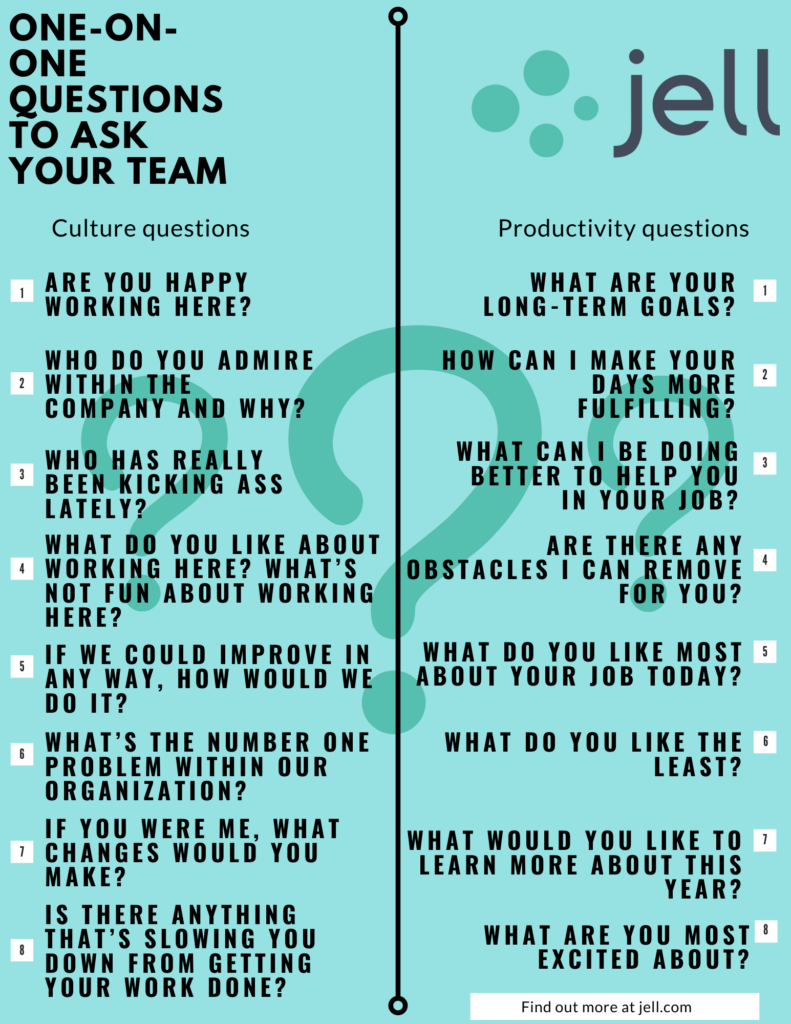
![Questions For A One On One Meeting Free Printable One To One Meeting Templates [PDF, Word, Excel]](https://www.typecalendar.com/wp-content/uploads/2023/05/1-on-1-meeting-questions-to-ask-manager-1.jpg?gid=270)



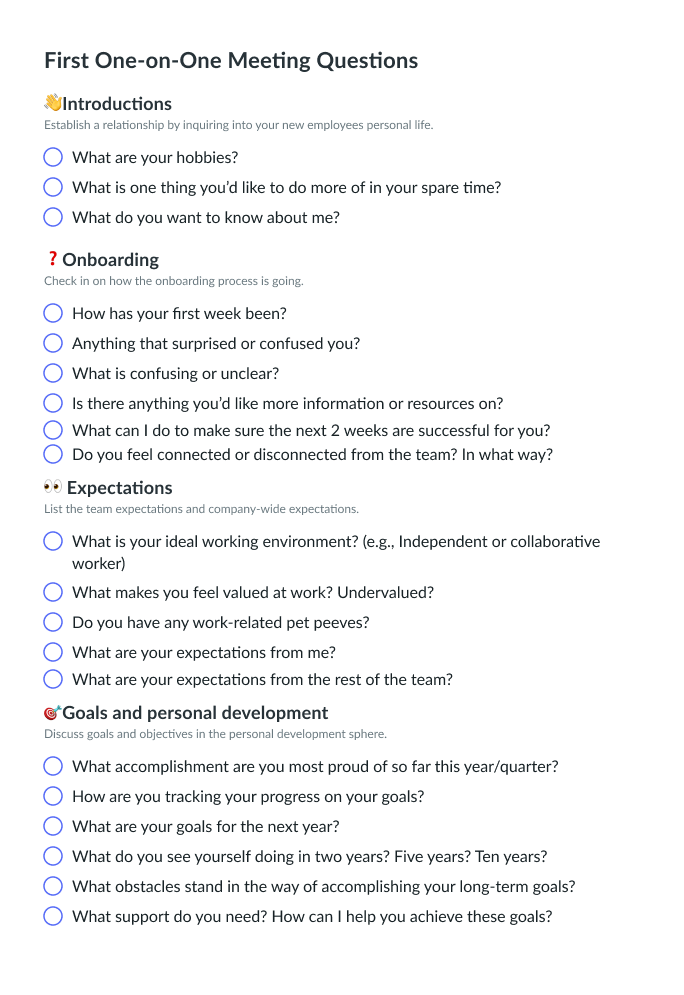
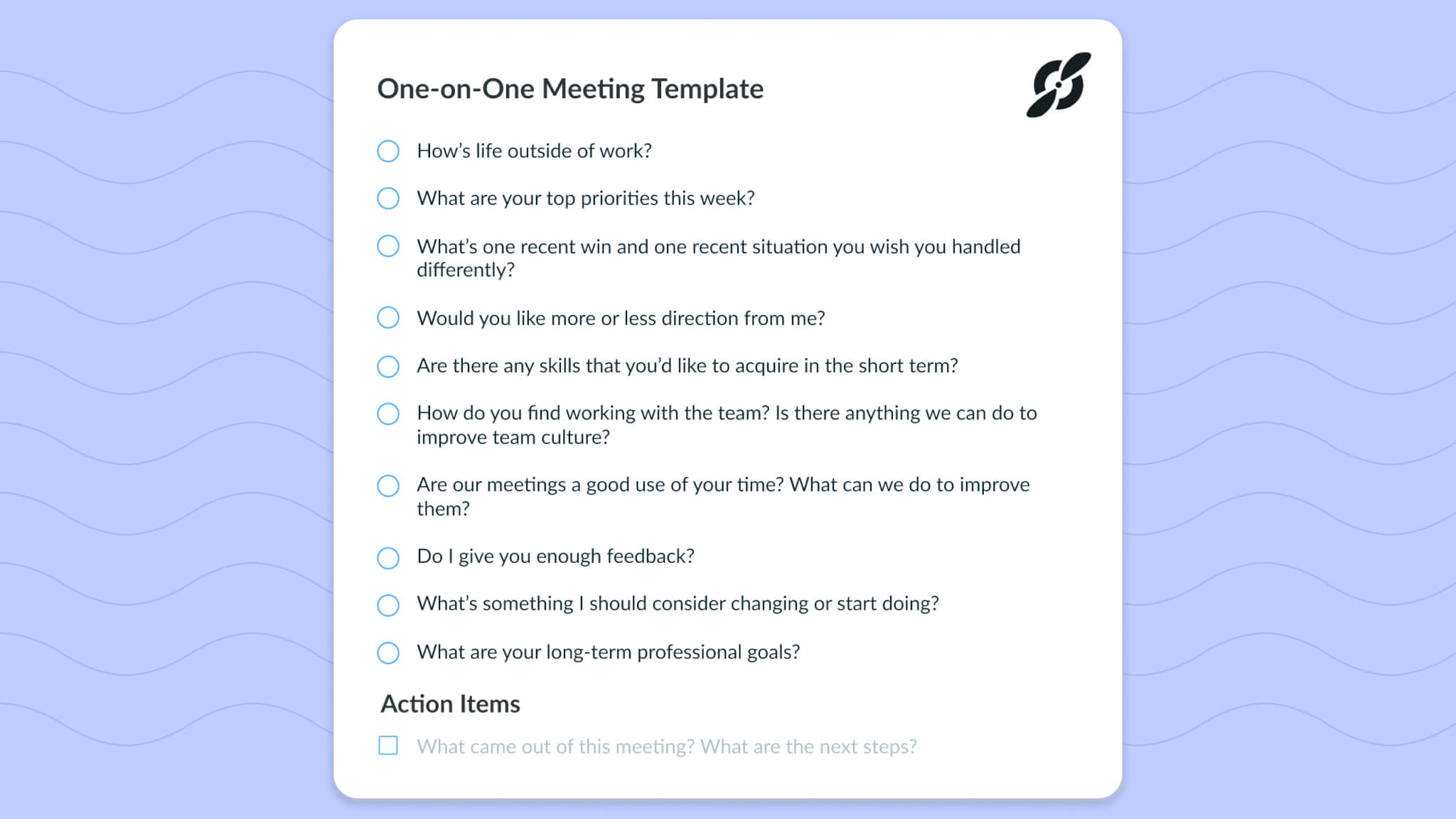
![Questions For A One On One Meeting 200+ One-on-One Meeting Questions [2025 Updated] - Springworks Blog](https://blog.springworks.in/wp-content/uploads/2020/11/19-Mar-21-One-on-One-Meeting-Questions-and-Tips3556x2000-1-scaled.jpg)
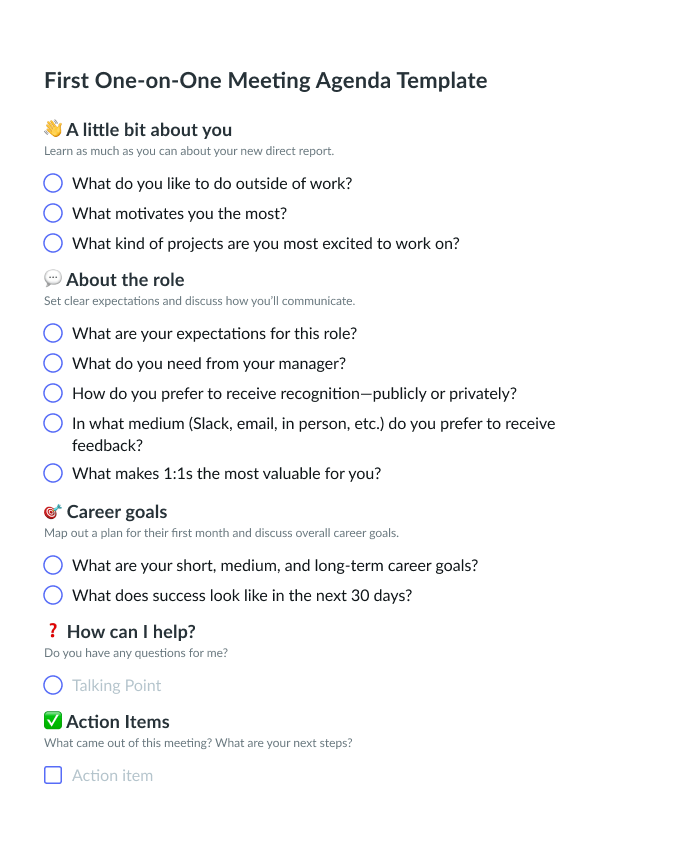
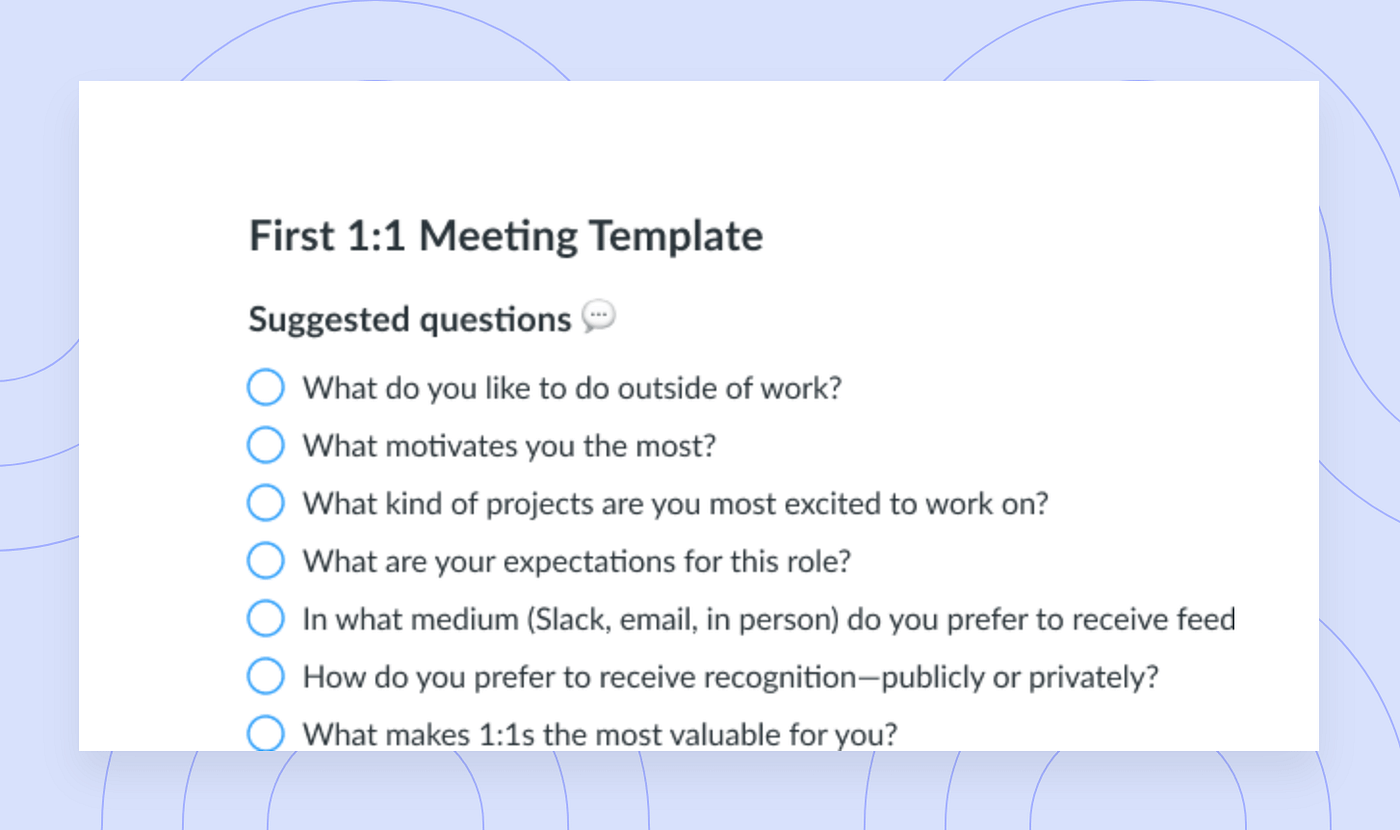





![Questions For A One On One Meeting Free Printable One To One Meeting Templates [PDF, Word, Excel]](https://www.typecalendar.com/wp-content/uploads/2023/05/One-to-One-Meeting-1-1024x576.jpg)


